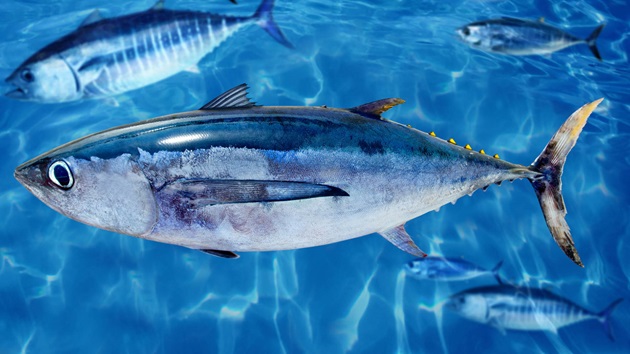A new University of Tasmania (UTAS) report commissioned by the Marine Stewardship Council (MSC) scores canned tuna brands against ACCC Principles for Environmental Claims.
New YouGov survey shows canned tuna consumption is rising: 78% of Aussies now say they purchase canned tuna compared to 72% in 2023. Gen Z, Millennials, and young families are driving the increase.
Australians are being urged to ‘check their cans’ and take a closer look at what’s behind the label of their favourite canned tuna. A first-of-its-kind academic study from the University of Tasmania, alongside fresh consumer insights from YouGov, revealed which brands can back up their environmental claims — and which may fall short on evidence.
In a combined report released on World Tuna Day, canned tuna is a pantry staple for 78% of Australians, yet a new report shows many shoppers are being left in the dark when it comes to how their tuna is sourced. The University of Tasmania’s study, Greenwashing in the Tuna Industry, is the first to score 14 commonly purchased canned tuna brands against the Australian Competition and Consumer Commission’s (ACCC) principles for making environmental claims, providing an evidence-based benchmark that cuts through greenwash and guesswork.
Brands generally lacked sufficient evidence to support their environmental claims. There were widespread issues with omitting key information, and broad, unqualified claims were common. In addition, communication clarity was divided, while some brands effectively conveyed their sustainability claims, others used complex language.
With the ACCC clamping down on greenwashing, brands making vague or misleading environmental claims and self-produced ecolabels that lack third-party verification face growing pressure to provide clear, evidence-based information. At the same time, more Australians are trying to make sustainable choices, but without the understanding of trustworthy labelling, that task becomes harder.
While four in five (79%) say they look to find out if the canned tuna they purchase is sustainable, most rely on unverified brand claims, leaving them vulnerable to greenwashing. Only 15% of Aussies are looking for independently verified ecolabels, raising concerns about how consumers can tell if their tuna is truly sustainable.
As demand grows, so too does scrutiny. "Without independent verification, consumers can’t know if their tuna came from healthy, responsibly managed fisheries — or if it’s contributing to overfishing and the destruction of marine habitats. Overall, this report underscores the need for clearer sustainability messaging and improved accountability among brand packaging to ensure consumers can make informed choices. The MSC certification process involves rigorous, science-based standards, impartial audits, and ongoing assessments to ensure fisheries continuously improve.” said Anne Gabriel, Program Director, Oceania at the Marine Stewardship Council.
Coles, John West, The Stock Merchant, Little Tuna, Walker’s Tuna and Safcol emerged as leaders for their credible, transparent information communicating their sustainability practices and adherence to ACCC guidelines setting a benchmark for industry-wide practice. Based on scoring patterns, the research concluded that brands with third-party sustainability accreditation such as Marine Stewardship Council (MSC) certification achieved a better alignment with the ACCC principles than other brands.
“Our analysis shows that independent certification isn’t just helpful — it’s essential,” said Associate Professor Dan Daugaard, lead researcher at the University of Tasmania. “Brands with verified claims are more aligned with regulatory standards and far more likely to win consumer trust.”
“Environmental claims need to be honest, accurate, and backed by robust evidence,” added Prof. Daugaard. “Certification by independent bodies like the MSC can help brands meet these expectations — but it’s also up to retailers and producers to lift the standard of communication and transparency.”
Over half (54%) of all wild caught tuna globally is now MSC certified sustainable. Gabriel concludes that the only way consumers can be sure the seafood they purchase is caught by an MSC certified sustainable fishery is to look for the MSC blue fish tick label on the packaging.
"With 2030 fast approaching, it is critical we align our sourcing and shopping habits with the UN Sustainable Development Goals—particularly those focused on life below water, responsible consumption, and sustainable growth. This isn’t just a matter of corporate vs consumer responsibility—it’s a collective imperative. Every purchasing and sourcing decision is a chance to protect our oceans and secure a healthier future for people and planet."


